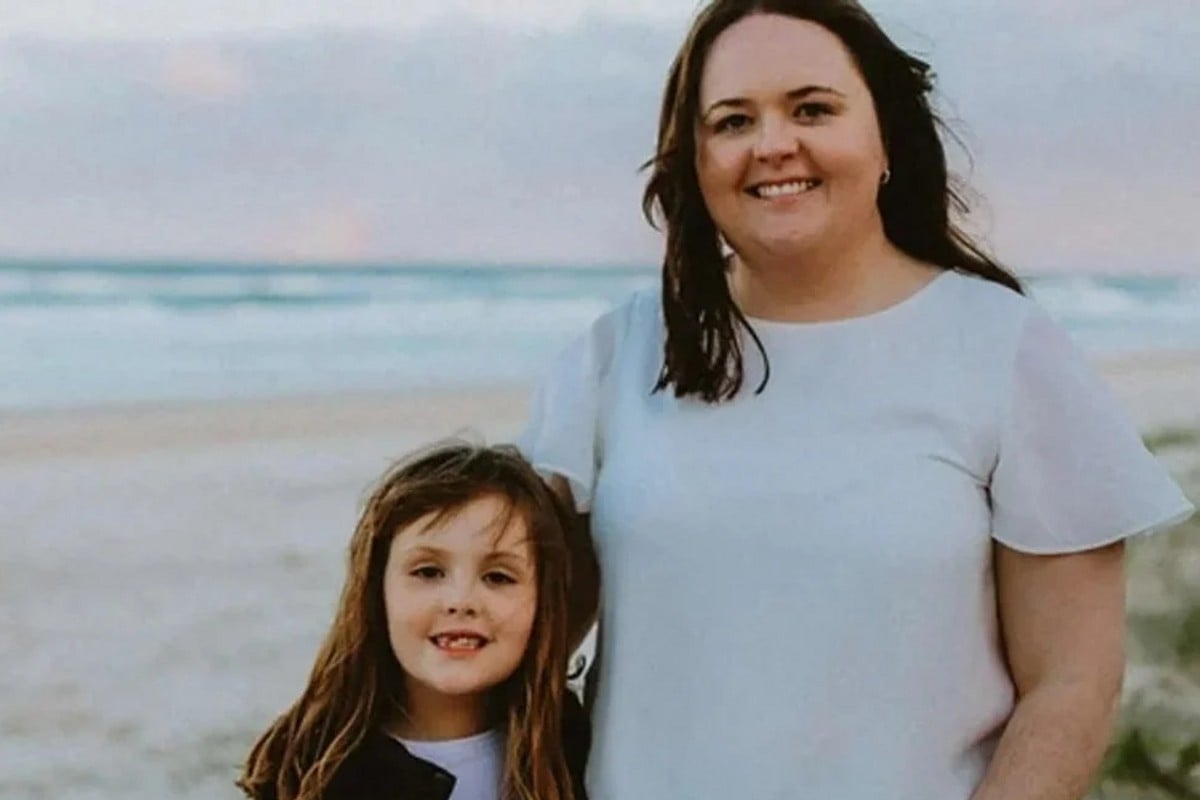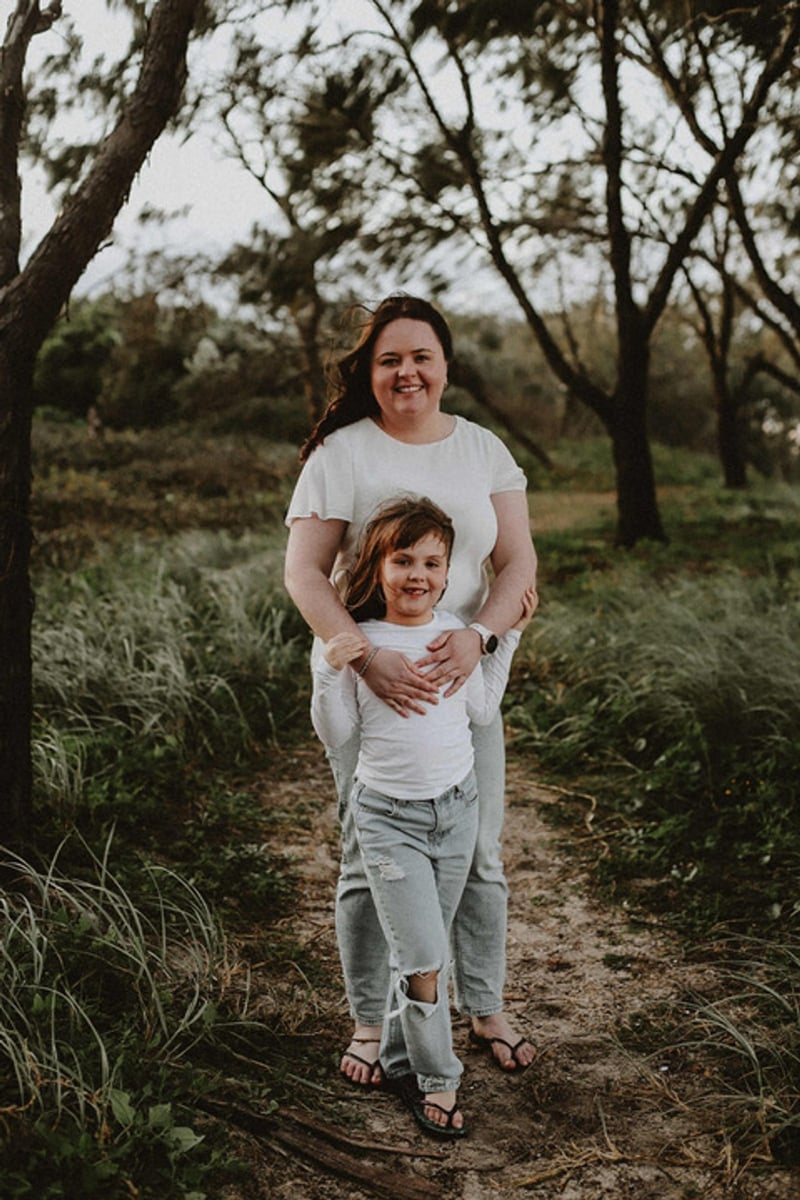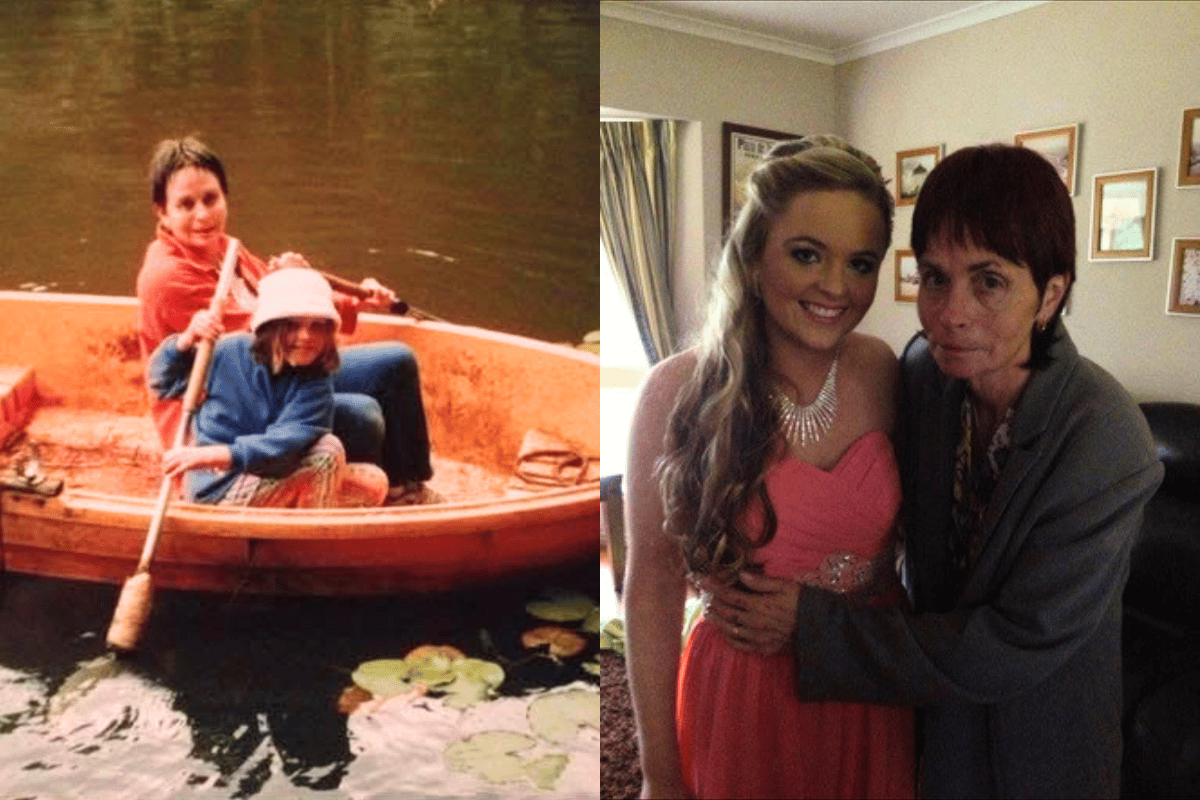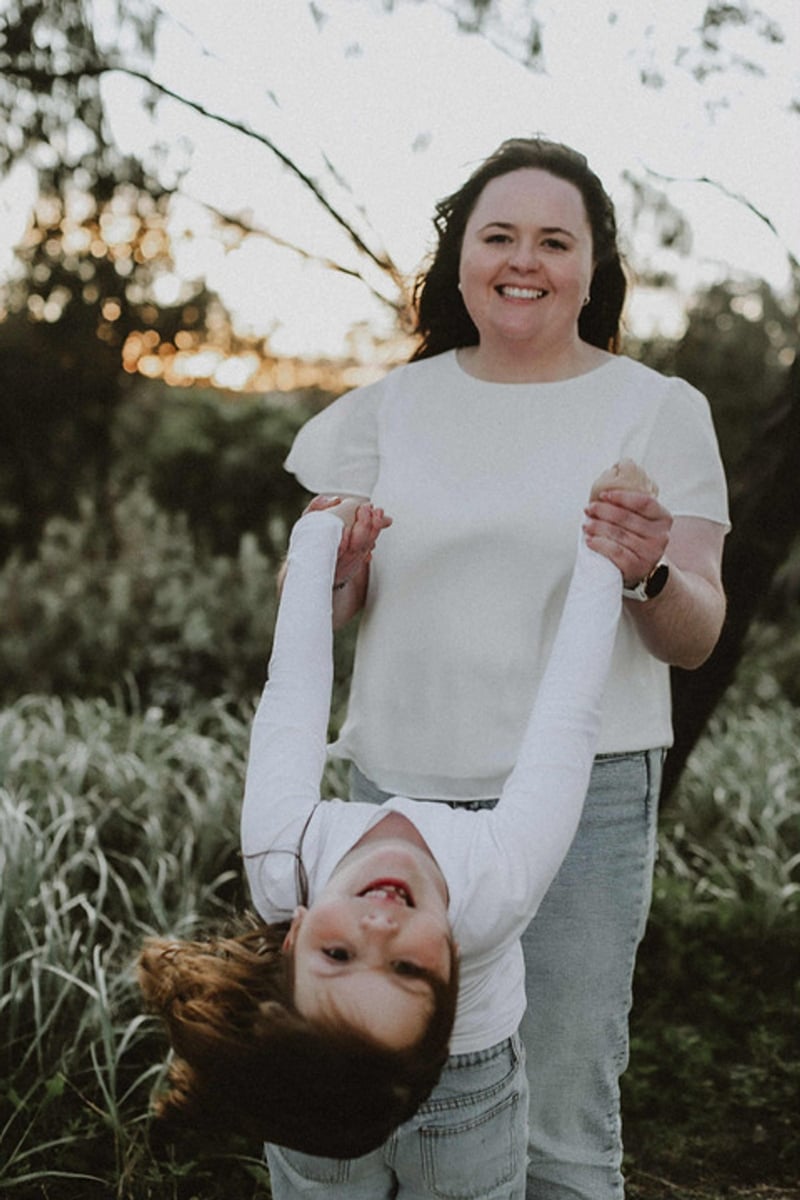
Earlier this year, when Erin Kelly started forgetting simple words at home and at work, she knew something wasn't right.
The 29-year-old single mum — who works full-time in administration while raising her eight-year-old daughter Evie — had her suspicions about what was causing it.
She had seen the same disease claim the lives of her mum, her aunt, and her grandfather.
"I had noticed I was mixing up words, forgetting words, and just mushing words together," Erin told Mamamia.
"And this is something I don't normally do. I decided I would get a test done to see whether effects on my brain had started."
 Erin is a single mother to 8-year-old Evie.
Erin is a single mother to 8-year-old Evie.






























































































